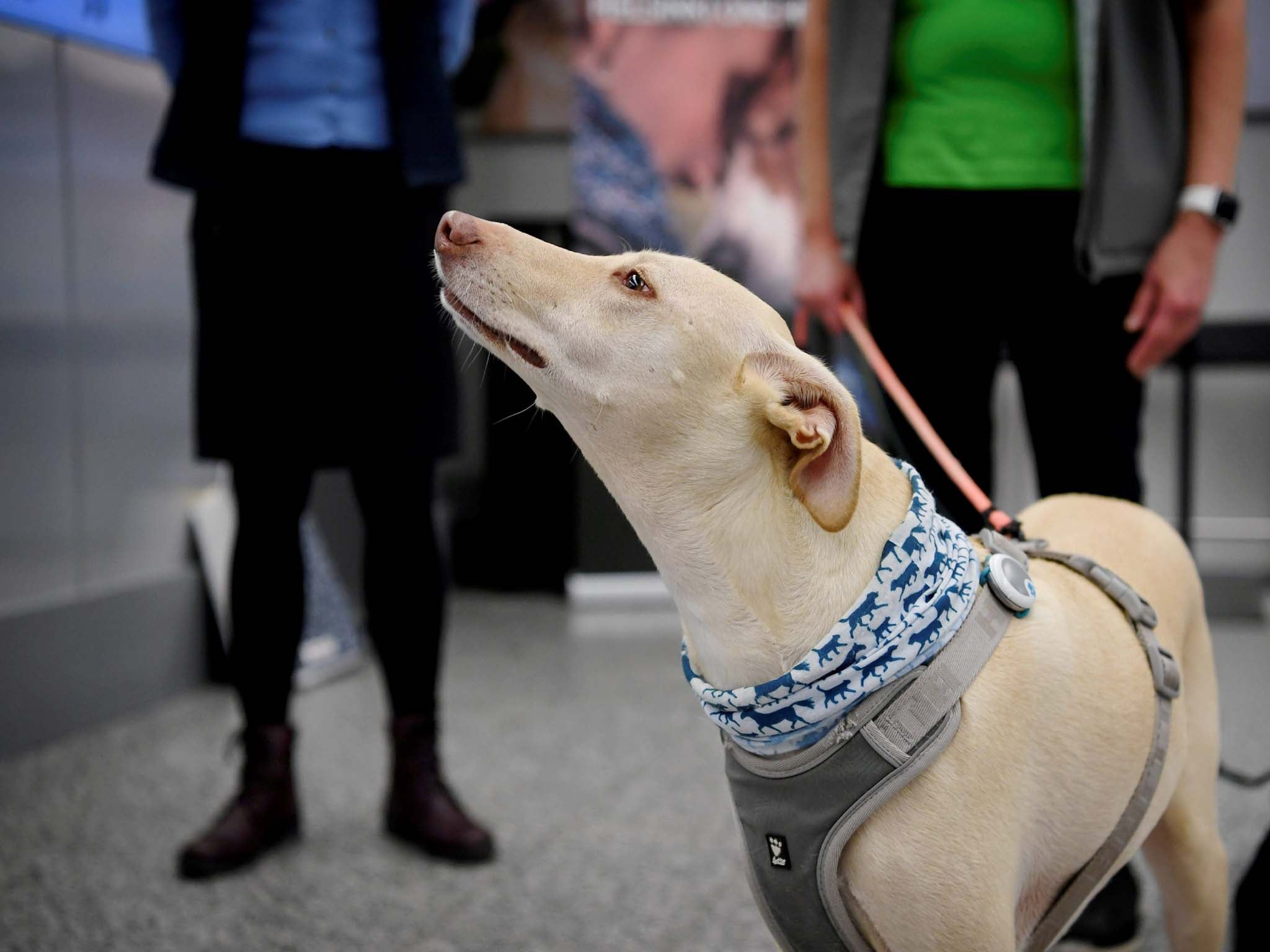Coronavirus: Sniffer dogs deployed at Helsinki airport as UK trial ongoing
‘This might be an additional step forward on the way to beating Covid-19’

Trialling of the scheme which involves sniffer dogs detecting coronavirus on passengers began today at Helsinki airport.
The experiment follows research by the University of Helsinki’s veterinary faculty which suggested that dogs can detect Covid-19 with almost 100 per cent certainty.
The trial involves 16 dogs with four being deployed per shift, all from WiseNose, a small non-profit detection agency in Finland.
Finnish airport operator Finavia said, “We are among the pioneers. As far as we know no other airport has attempted to use canine scent detection on such a large scale against Covid-19.”
They added, “This might be an additional step forward on the way to beating Covid-19.”
In the trial, there is no direct contact between dogs and passengers and those detected with the virus will receive an additional conventional check so as to be completely certain.
One dog, an eight year old greyhound mix called Kossi, has been trained to identify the scent in just seven minutes.
Finaviva said that while PCR swab tests need around 1.8 million molecules to identify the virus, dogs only need 10 to 100 molecules.
The operation in airports will involve passengers swabbing their skin with a wipe and dropping into a cup. The sample will then be checked by a dog in a separate booth.
The operators say the trial will run this way so as to protect both the anonymity of the passengers and the dog handlers.
During the pandemic, Finland has reported 9,195 cases of Covid-19 and 341 deaths, according to John Hopkins University data.
Meanwhile in the UK, a similar scheme has been running which is led by The London School of Hygiene and Tropical Medicine (LSHTM) alongside Durham University and the charity Medical Detection Dogs.
Six bio-detection sniffer dogs are being trained in Milton Keynes using samples of socks and t-shirts from volunteers who have tested positive or negative for the virus. Among those who have volunteered are 3,500 NHS staff nationwide.
Claire Guest, head of Medical Detection Dogs who are responsible for training the dogs said: "We are very proud that a dog's nose could be part of a solution to find a fast, non-invasive way of diagnosing Covid-19 and make a tangible difference to any future pandemics."
The LSHTM have said that trained dogs could be deployed in UK airports within the next six months with the potential of screening up to 250 people an hour. Leading figures in the study have even said some animals could be trialled as early as Christmas.
Professor James Logan, project lead in the study, said “this trial could revolutionise how we diagnose the virus.”
He added, “Rapid screening of high numbers of people, even if asymptomatic, will help return our lives back to some sort of normality.”
Previous research has found trained sniffer dogs can accurately detect parkinson’s disease, forms of cancer and malaria.
Another expert in the study, Professor Steve Lindsay, said if successful, this research could be “very important to help prevent a second wave of the epidemic.”




Join our commenting forum
Join thought-provoking conversations, follow other Independent readers and see their replies
Comments